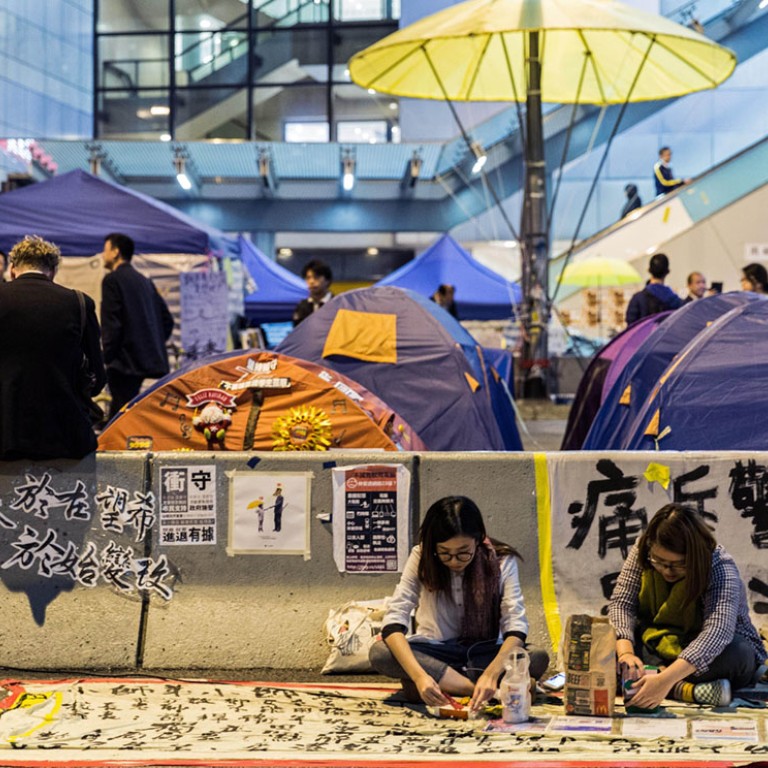
Democracy would allow Hong Kong to pursue its own Chinese dream
Some people ask why Occupy. Because 30 years of pursuing democracy via more moderate means has failed miserably. Attempts to engage with Beijing have been met with indifference or outright hostility.
Some people ask why Occupy. Because 30 years of pursuing democracy via more moderate means has failed miserably. Attempts to engage with Beijing have been met with indifference or outright hostility. Hong Kong has always had to acquiesce to Beijing's demands. What have our people received in return?
In 2012, the controversial national education curriculum was almost imposed on our youth; in 2003, Article 23 almost gave the government unchecked powers to arrest and convict citizens under the guise of preventing treason or subversion; and more generally, the government has aggressively driven policies that polarise society by "mainlandisation" of Hong Kong, robbing the territory of core values that were crucial to its past decades of prosperity.
The Sino-British Joint Declaration promised Hong Kong "a high degree of autonomy" for 50 years. Nevertheless, earlier this year, the central government declared that Hong Kong's freedoms were merely the result of China's tolerance and goodwill, and could be revoked at any time.
Outside politics, the increasing tilt towards the mainland has bred social discord. Multinational companies have long favoured hiring mainlanders with potentially lucrative family or political connections.
Government collusion with tycoons has transformed this city into a playground for rich mainlanders.
Where does all this put us today? University graduates have little to look forward to besides queuing for public housing and working in dead-end retail jobs selling handbags and electronic gadgets to tourists.
Given that Hong Kong is undeniably a part of China, what is wrong with "mainlandisation"? Closer integration risks turning Hong Kong into just another mainland city. Hong Kong's position as Asia's world city stems from freedom of expression, rule of law and a civil society.
Without these, many businesses and investments will inevitably move elsewhere. Businesses cannot risk being based in mainland China due to the lack of transparency and unreliable legal structures. Surely that is food for thought for our leaders, who love to talk about economic competitiveness.
Democracy is not a cure-all for Hong Kong's problems of social inequality and political uncertainty. But democracy provides a platform for remedying important social issues and a fair playing field for us to fight for a better future, our own version of the "Chinese dream".

